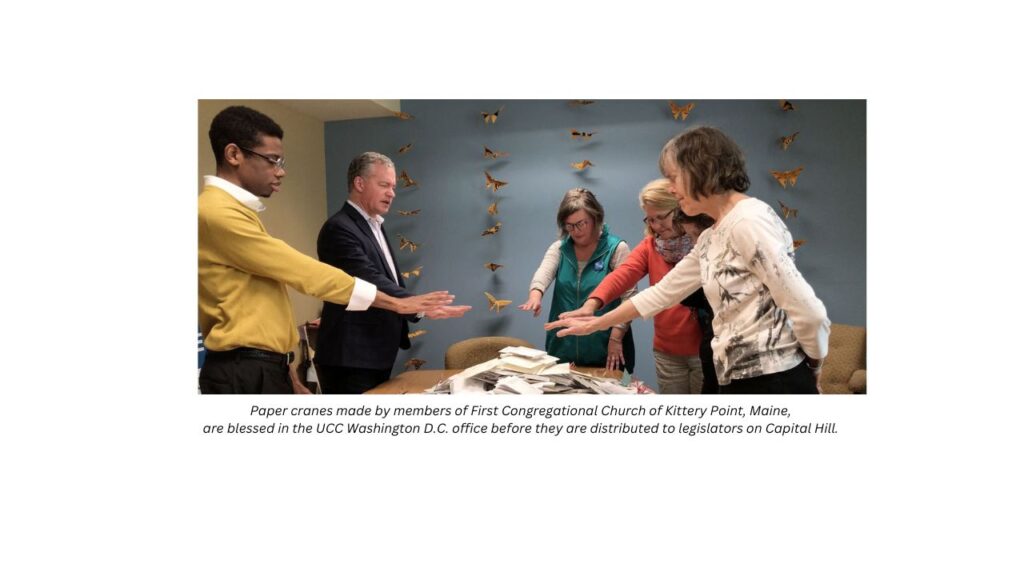Smaller, cheaper Synods proposed by South Dakota Conference
While affirming the need of the church’s governing body to meet every two years, the measure – titled “A Resolution Establishing Representative and Senatorial Synods” – argues that scaling down every other meeting of the Synod will save money for a financially-strapped church.
“This is about stewardship without losing our biennial Synods,” said the Rev. Gene Miller, South Dakota Conference Minister. “There have been a lot of bells going off about the finances not being there and about how they won’t be there. We think this plan would cut costs dramatically.”
In the plan outlined, the UCC would convene a smaller, “Senatorial Synod” every four years consisting of only two voting delegates from each of the UCC’s 39 Conferences, as well as two delegates each from the Church’s four Covenanted Ministries and the Executive Council.
A fuller “Representative Synod,” consisting of as many as 725 voting delegates and more than 2,000 visitors, would be held in the intermittent two years.
According to current estimates, this year’s full, Representative Synod will cost approximately $2 million for ample convention space, production costs, airfare and hotel rooms. Most of that is shared by the UCC’s national setting and Conference offices.
But according to Miller, the South Dakota Conference’s proposal is not just about money. Holding smaller, Senatorial Synods every four years would allow smaller regions of the country the opportunity to play host.
“Having smaller Synods allows the church to go to cheaper settings and to places where you couldn’t normally hold a Synod,” Miller said. “We’ve wanted to hold Synod at Sioux Falls for a decade, but we are borderline for it as it stands now. If it was a smaller Synod, they would probably give it to us in a heartbeat.”
Senatorial Synods, Miller said, also would serve to allow smaller Conferences to have representation equal to that of larger Conferences. Currently, the number of Synod delegates allotted to specific Conferences is determined by the size of each Conference. According to Miller, the UCC’s 13 smallest combined have less delegates than the UCC’s largest Conference.
“That’s what we in smaller Conferences have had to always live with,” Miller said. “In some respects, this will level the playing field.”
Miller acknowledges that larger Conferences would lose some of their representative clout under his Conference’s proposal, but he argues they also stand to save the most money.
“The people who will be giving up the most will be Conferences like Massachusetts and Ohio. But it is those types of Conferences that also stand to save the most amount of money.”
Categories:
United Church of Christ News
Related News
Earth Day Summit 2024 focused on environmental issues and urged action
The second annual United Church of Christ Earth Day Summit took place on Saturday, April 20,...
Read MoreLocal congregations stir the policy waters, visiting Washington D.C. legislators to pray, talk and get action
The nation’s capital was recently flooded with justice-seeking advocates representing United...
Read MoreStrengthen the Church materials now available ahead of May 19 day of giving
The United Church of Christ Strengthen the Church (STC) Offering reflects the shared...
Read More

